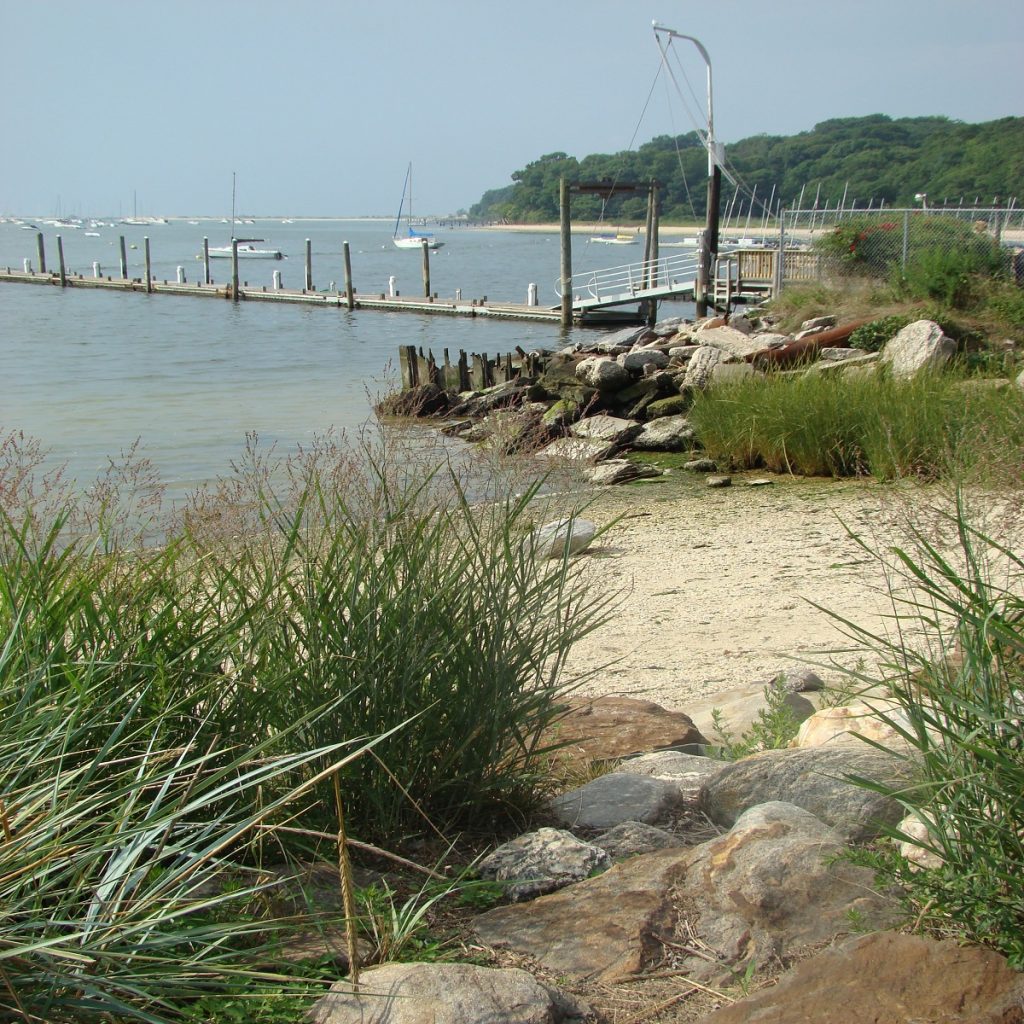New York’s new budget makes a powerful statement about the need for bold, concrete action to protect and preserve our natural resources. A $4.2 billion bond act intended to reduce flood risk, conserve open space, improve water quality, restore coastlines, and shore up infrastructure in the face of climate change is one of the highlights of New York State’s 2022-23 budget, which advances numerous environmental issues. The budget also includes a record $400 million investment in the Environmental Protection Fund and $500 million for clean water infrastructure funding, as well as strengthened regulations to shore up protection of freshwater wetlands.
“This budget’s historic investment in the environment positions New York State as a climate leader,” said Leah Lopez Schmalz, vice president of programs for Save the Sound. “Governor Hochul, the state Senate, and the Assembly are investing in the infrastructure and conserving natural resources now to ensure we are protected against coastal erosion, intense storms, and water and air pollution for generations to come. This budget will provide a cleaner, healthier, safer future for all. We urge every New York voter to do their part this November by taking these investments over the finish line.”
(Want to know what’s happening in other parts of the region? See our CT budget response and legislative session wrap-up.)
The state’s landmark environmental initiative, the $4.2 billion Clean Water, Clean Air, and Green Jobs Environmental Bond Act, will come before voters in the fall. Governor Hochul has called the budget-authorized referendum “historic” and “nation-leading,” and Gothamist called it a “key component to the state’s strategy for turning the tide of global warming.” It allots $1.5 billion for climate change mitigation; $1.1 billion for restoration and flood risk reduction; $650 million for open space land conservation and recreation; $650 million for water quality improvement and resilient infrastructure; and another $300 million to be allocated in the future. Among the many programs the bond act, if passed, could fund are wetland and other habitat restoration projects, municipal stormwater projects, purchase of electric vehicle school buses, and acquisition of lands for open space preservation.
“Save the Sound is thrilled New Yorkers will have the opportunity to vote for this bond act later this year,” said Louise Harrison, our New York natural areas coordinator. “The Clean Water, Clean Air, and Green Jobs Environmental Bond Act can help support protection of properties we’ve identified in our endangered lands program, such as a majority portion of the 225-acre Seminary property in Lloyd Harbor, which Long Island advocates have sought to preserve for decades, and which is listed in the 2016 New York State Open Space Conservation Plan.”
In addition, the 2022-23 budget adds $100 million to the Environmental Protection Fund, a perennial source of capital projects to protect natural resources. This year’s $400 million appropriation includes funding for open space and land conservation; water quality improvements such as well testing and nitrogen reduction; stewardship of state lands for public recreation; waterfront revitalization projects; improvements to municipal parks; solid waste management; climate change mitigation and adaptation projects; and more.
The EPF also includes funds for municipalities to survey and map wetlands—an important project in light of improvements also made in this year’s budget to freshwater wetlands protections. Until now, wetlands in New York State had to be on a map in order to merit protection by the Department of Environmental Conservation. That left over a million acres of New York wetlandsat risk of being damaged or destroyed. Thanks to a unified effort by elected officials in both chambers and the governor’s office, the state’s 2022-23 budget revises New York’s Freshwater Wetlands Regulatory Program and eliminates the mapping requirement. In addition, the program now protects wetlands larger than 7.4 acres (previously 12.4 acres) and some smaller wetlands of “unusual importance.”
The New York State Clean Water Infrastructure Improvement Act (WIIA) has been increased in the new budget to $500 million from $400 million in 2021. Save the Sound, with our partner groups, advocated for this increase in funds, which will go directly towards projects that protect and restore surface waters, including Long Island Sound and its many New York tributaries, or that provide clean drinking water. Eligible funding applicants include municipalities and Indian Nations or tribes that are recognized by NYS or the US and have a reservation in New York. WIIA projects can, for example, target reducing sanitary sewer overflows of untreated sewage into our waters during sustained rain events, an issue resulting from both disrepair of sewage infrastructure and the growing frequency and intensity of precipitation events due to climate change.
Save the Sound thanks Governor Kathy Hochul; Senator Todd Kaminsky and Assemblyman Steve Englebright, chairs of their chambers’ respective environmental conservation committees; Assemblyman Steve Otis; and the many other champions who worked to include these powerful environmental elements in this budget! Thanks to these leaders, New Yorkers will enjoy cleaner air and water, a healthier climate, and beautiful wild spaces.

